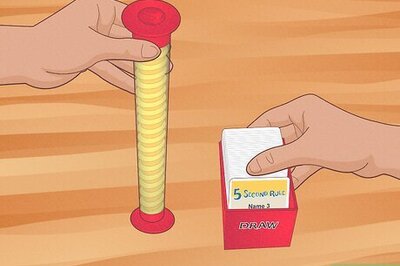
views
Are you one of those who worry incessantly that you are gaining weight? While weighing scales are one of the worst nightmares for those on the ‘slightly healthy’ side, it turns out that stepping onto bathroom scales every day can actually help a person shed those extra kilos.
According to a report published in Daily Mail, researchers, people who regularly weighed themselves either maintained their size or lost weight.
The study, conducted by researchers from the University of Georgia revealed that reminder of seeing a physical weight increase every time one weighs themselves encourages people to adjust their behaviour the next day.
This could be through anything, from exercising a little more to keeping a watch on what they consume, which, according to scientists, is in sharp contrast to people who did not weigh themselves regularly and thus felt no need to adjust their behaviour based on their daily observations.
The study, that will soon be published in magazine Obesity saw researchers examining 111 adults between 18 to 65 years. Researchers analysed participants from mid-November 2017 to early January 2018 when the average adult puts on approximately between 0.4 to 1.5kg, eating food over the festive period.
The researchers told participants to try to maintain their baseline weight throughout the holiday season but did not provide them with any additional instructions on how to achieve that goal. They were forced to decide how they would modify their behaviour.
The study observed that people who did not weigh themselves regularly gained 2.2 kgs during a two-month period, on average. On the other hand, those who stepped on the scales every day maintained their weight.
Researchers then followed up with participants, who'd continued to weigh themselves daily for 14 weeks later. They found that those who were stepping on the scales each day had lost on average 0.1kg.
Speaking about the study, lead author Jamie Cooper said that maybe a person would exercise a little bit more the next day, after seeing a weight increase, or they watch what they are eating more carefully.
Second author Michelle vanDellen said the latest findings support discrepancy theories of self-regulation. According to her when people see a discrepancy between their current self and standard goal, it tends to lead to behavioural change, thus leading to losing weight or maintain it.



















Comments
0 comment